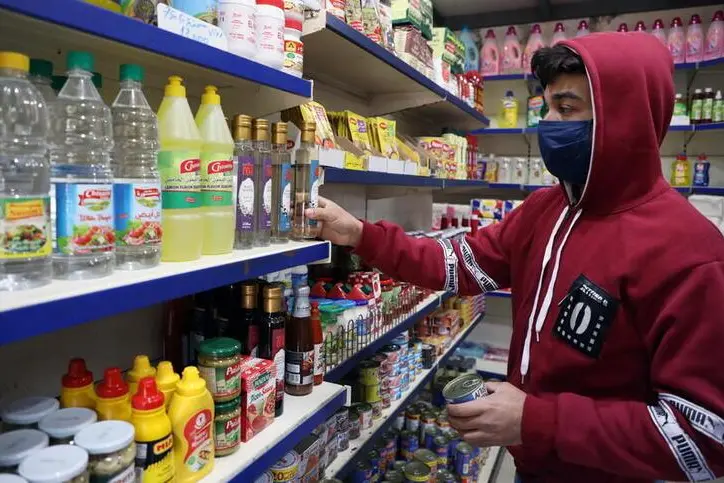PHOTO
BEIRUT: Life in Lebanon started to return to a semblance of normalcy Monday as authorities lifted more coronavirus restrictions despite warnings from experts that cases could soar again.
Following the government's guidelines, factories, different types of shops, as well as ski slopes and malls, can reopen, each at regulated hours during the week.
Nonetheless, everyone is expected to take preventative measures during work including social distancing and wearing medical masks to avoid contracting the virus.
People are still obliged to get permission through an online platform to go to some shops, like supermarkets, with an 8 p.m. to 5 a.m. curfew in force.
Authorities, under pressure from powerful business and trade associations, had announced in early February a four-stage plan to ease a virtually total lockdown imposed Jan. 14, over eight weeks, but a ministerial committee decided this week to accelerate the reopening with most shops and businesses having reopened Monday, while schools are set to resume classes from March 8.
Despite displaying high alert with regards to the virus, owners of shops have been complaining about the soaring exchange rate of the Lebanese pound against the dollar, which is projected to surpass its record low in the coming weeks if authorities dont put an end to political bickering and enact urgent economic reforms.
A local accessories shop owner in Beiruts Gemmayzeh street, who prefers not to be named, told The Daily Star he is considering shutting down his shop if prices of essential goods needed to purchase for the reopening and resumption of his work remain at such a high rate.
We can barely afford to sustain a very minimal quality of life, let alone maintain or make marginal profits from our shop. I love my work but this country doesnt seem to love it back, he said.
People are increasingly angry as thousands have lost their jobs or the value of their salaries, which are paid in Lebanese pound, amid a political and economic stalemate.
A small number of protesters blocked roads in some areas in the countrys capital Sunday, as they echoed the concerns of many of the countrys residents: They do not have money anymore and have grown tired of seeing no improvement to their quality of life.
Earlier this year, demonstrations in Tripoli erupted as a result of deteriorating living conditions and a crumbling economy in free-fall. Tripoli, home to some of Lebanons wealthiest billionaires, is the countrys poorest city, and circumstances brought about by the pandemic only exacerbated the already deprived city even further.
Lebanon began last week a national inoculation campaign, but the slow delivery of the vaccine around 100,000 doses have so far been received and logistical difficulties means the target of vaccinating 80 percent of the 6 million population to achieve herd immunity is unlikely to be achieved this year. More doses of the Oxford-AstraZeneca vaccine are set to arrive in mid-March.
The Health Ministry said Sunday 50,415 people have received the first dose of the COVID-19 vaccine so far. The country has seen more than 4,650 deaths and 375,000 infections in the pandemic over the past year.
Copyright 2021, The Daily Star. All rights reserved. Provided by SyndiGate Media Inc. (Syndigate.info).





















